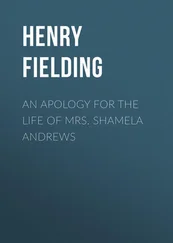There was just one small problem: the property did not belong to Morgan. He lived there as his elder brother’s house guest. To be a gentleman under these circumstances was a difficult part to carry off. There was already a nephew bounding about Tooting Lodge, a thirteen-year-old called Rees destined one day to return the family to Wales. Worse yet: only a few months after the birth of Georgina, Morgan’s brother, late in life, was given another boy. This finally slammed the door in the face of any hope he himself might have had of the Lletymawr properties and their rents. It was true he did not have to work but neither was he rich in the way his heart desired. Riches were not quite the central issue – what he longed for was pre-eminence. He was a man who could not bear to be in another’s shadow. This was a feeling he gifted in full to his daughter.
Georgina’s mother had an equally illustrious family history. She was born Louisa Frances Dalrymple, of Mayfield in Sussex. The Dalrymples were an ancient family and claimed descent from the Earls of Stair. Her grandfather was General Sir Hew Whitefoord Dalrymple, the soldier who had signed the Convention of Cintra in 1808, which provided for his enemy the French to evacuate Portugal in British ships with all their impedimenta and a mountain of loot besides. The terms of the Convention were considered so scandalous that Sir Hew never again commanded in the field. He was instead made a baronet and died in 1830. Of his two sons, the elder, who was also a soldier, sat in Parliament for Brighton. The younger was John Apsley Dalrymple, Colonel of the 15th Hussars and Lord of the Manors of Cortesly and Hamerdon near Ticehurst in Sussex. He died in 1833. This man was Louisa’s father. There were problems with this lofty background too.
Insecurity and disappointment made both Georgina’s parents tremendous snobs. The careful and faintly comical allusions to an ancestry not half as grand as they pretended was second nature to these two, and was a form of vanity that ran – increasingly as the Early Victorian period developed – against the tide. Georgina grew up in a meritocratic age. This same Victoria, who seemed so light and biddable when she became Queen, came to preside over the greatest shift in social structure the country had ever experienced, calling for the wholesale redefinition of words like art, and culture, industry and progress and, most significantly of all, family. This change in style and substance had no effect whatever on Georgina’s parents. In 1837, Mr Pickwick’s friend Sam Weller had a characteristically sardonic way of expressing the essence of the old order: ‘Wotever is, is right, as the young nobleman sweetly remarked wen they put him down in the pension list ’cos his mother’s uncle’s wife’s grandfather vunce lit the King’s pipe with a portable tinderbox.’
This was also Morgan’s view of the world. He never mastered the new epoch. You had to look quite a long way down the descending orders of rank to arrive at his actual position in society – though of course his contemporaries could place him after only a few idle questions. This was a second son, educated at Cheam, entered under Mr Wilding at Trinity College, Cambridge, with men who would far outshine him. He was hardly highborn: his great-uncle’s saddlery overlooked the college gates. Later on, in supplying biographical details to year books and the like, he lightly removed his mother from a haberdashery in Cambridge and described the Hovels and all his numerous cousins as ‘of Norfolk’. In the same vein, he once claimed to have been presented at all the Courts in Europe, which was – to put it mildly – stretching the point. This mania for improving the bare facts – and in him it became an actual mania – was passed on to Georgina. There was something very wrong with Morgan Thomas and it seems to have been a wilful attempt to make time stand still or even run backwards. In this he was not alone and there was in his generation a writer only too likely to understand him and his kind.
Thackeray went to Trinity at about the same time as Morgan; and, like him, read law at the Inner Temple. In 1837, he came back from a three-year sojourn in Paris and in that year he too was presented with a daughter, born in London a fortnight after Georgina in much less auspicious circumstances. What distinguished Thackeray from Morgan Thomas and his kind was his energy and, above all, his talent. It was enough for Morgan to be a gentleman of independent means, however shaky those means were. But Thackeray had nothing on which he could fall back: what little he did inherit, he lost at cards in a disastrous evening or two when a student at the Inner Temple. Necessity sharpened his wits. In satirising the likes of Morgan and his foolish wife, he showed himself a man very much in the spirit of the times. The world was moving forward and the gifted man looked outwards and opened his mind and his senses to the new.
Part of the hack work Thackeray did for Frazer’s Magazine was to write the highly popular ‘Christmas Books’, the last of which was published in 1850. He was by now famous through having written Vanity Fair , which some of his contemporaries placed higher than anything by Dickens. At the end of the book the plot is triumphantly resolved when the major surviving characters find themselves thrown together at a Rhineland spa. In the Christmas Book of 1850 Thackeray returns us to the Rhine in the company of a fatuous family called Kicklebury. His satirical portrait of them drew a reproof from The Times . The review, which was written to order by a friend of Thackeray’s called Charles Lamb Kenney, greatly amused its target, enough for him to reprint it in the second edition of the work, with commentary. The one unanswerable point Thackeray had to make about the savaging of the Kickleburys was that the work had sold out. Kenny had written:
From the moment his eye lights on a luckless family group embarked on the same steamer with himself, the sight of his accustomed quarry – vulgarity, imbecility and affectation – reanimates his relaxed sinews, and, playfully fastening his satiric fangs upon the familiar prey, he dallies with it in mimic ferocity like a satiated mouser.
Yes, Thackeray rejoins: and the public loves it. Something is moving, something is in the air: there is no pity for vulgarity, imbecility and affectation. The Times , he indicates with an unruffled assurance, has missed the joke.
Georgina’s arrival did nothing to settle her parents’ position. In the short term, it greatly worsened it. The Thomas family had always found Morgan’s violent temper hard to stomach. Clearly he could not expect to go on living at Tooting Lodge for ever and the question had already been broached more than once as to when he would shift for himself. Georgina’s birth made an issue of it. As soon as it was clear she would not follow her sister into an infant grave, Morgan and Louisa came under pressure to leave. There may have been a second impetus. The family banked with their neighbour William Esdaile, who lay dying in Clapham. For two years Esdaile, who was a very old man but nevertheless the presiding genius of the bank he had built up, had done no business following malarial fever contracted in Italy. At the beginning of 1837 the bank failed. Whether or not the Thomas fortunes went down with it, Morgan was left with just enough unearned income to continue as a gentleman: the challenge was to find a house and a style that would reflect his high opinion of himself. Putting it another way, in the long gallery of snobs, what kind of a snob was he going to be?
Late in life, when the mood of retribution was upon her, Georgina published a letter from her brother Dalrymple. It read in part: ‘If you think to alarm me by threatening to unveil the fact that our grandfather Thomas was a drunken and dissolute lawyer and that Mother was a bastard you enormously mistake yourself.’
Читать дальше
![Brian Thompson A Monkey Among Crocodiles: The Life, Loves and Lawsuits of Mrs Georgina Weldon – a disastrous Victorian [Text only] обложка книги](/books/704922/brian-thompson-a-monkey-among-crocodiles-the-life-cover.webp)











